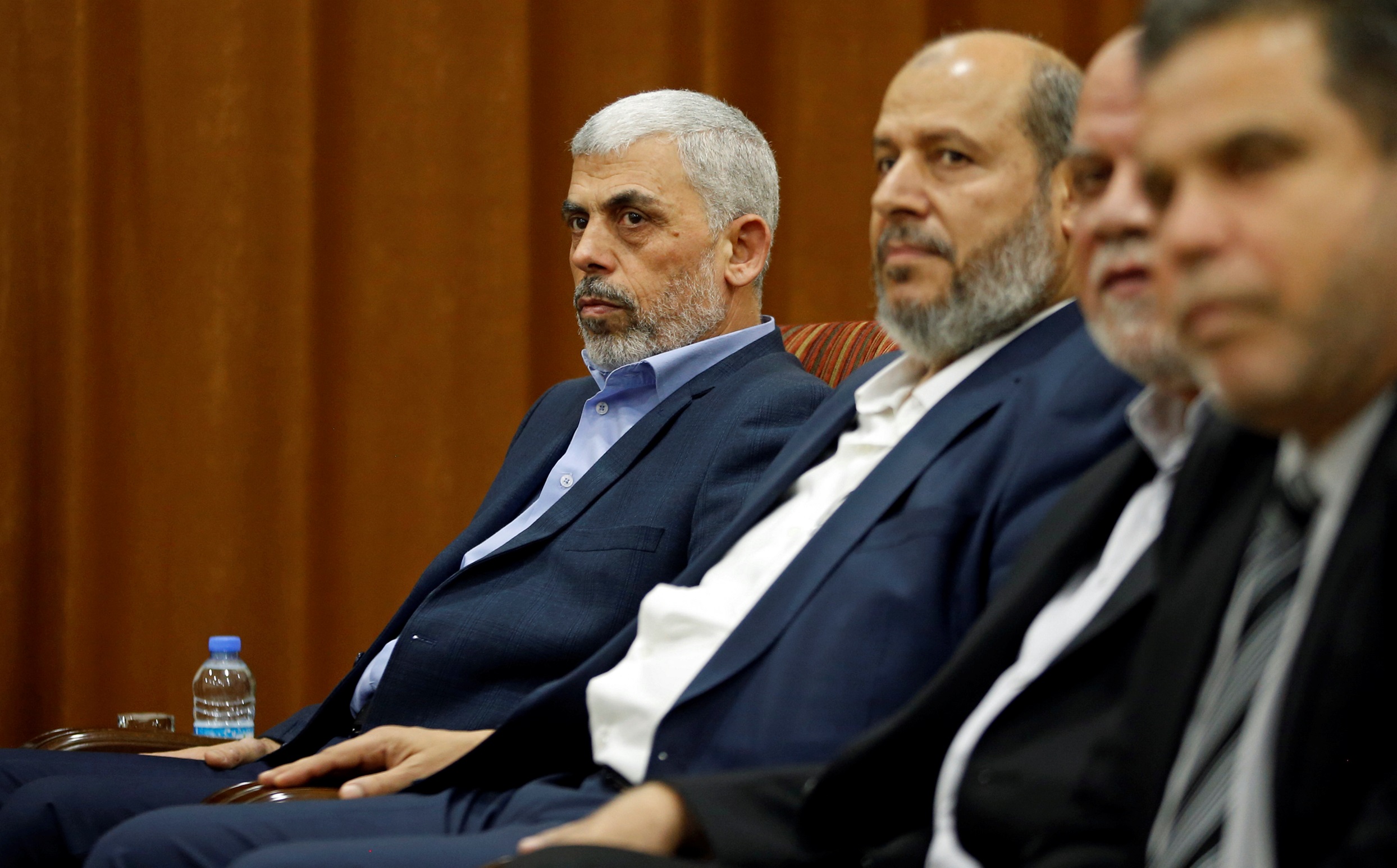Publications
INSS Insight No. 1860, June 3, 2024
Israel is capable of subduing Hamas by drastically reducing its influence among the public it purports to represent and lead, by denying the “damage power” and veto power it holds. This requires the implementation of six efforts—military, civilian, political, humanitarian, regional cooperation and cognitive—in a cohesive and synchronized manner.
There are those who argue, even firmly, that Hamas cannot be defeated. Indeed, it is difficult to annihilate an organization like Hamas, which relies on its foundation of being a social movement and espouses a rigid, extreme religious-nationalist ideology, in addition to having an armed military wing. But it is possible to greatly reduce Hamas’s influence among the public that it purportedly represents and leads, by denying its power to inflict damage and the veto power that it held and still holds.
This requires six combined efforts:
- Military effort: The operative dismantling of Hamas’s military wing should continue for a while, even after the war officially ends, to ensure that the organization cannot reestablish itself and restore its military power. The purpose of the ongoing military campaign is to prevent Hamas from being able to torpedo the political and civilian measures aimed at stabilizing the Gaza Strip and the Palestinian arena in general after the war.
- Civilian effort: Wherever it is possible to begin stabilizing and reconstructing the Gaza Strip, an official responsible for civilian control and public order should be appointed, and this measure should be implemented while preventing Hamas’s intervention and involvement. For example, Israel can still stabilize the northern part of the Gaza Strip, allow local authorities to operate, while removing Hamas-affiliated officials, and signal to the residents of the area that they can return and rehabilitate without fear from the organization.
- Political effort: Together with the United States and the pragmatic Arab states, a task force should be built to revive and reform the Palestinian Authority and help it establish civilian control in the Gaza Strip. To gain the support of the residents of Gaza, the PA should return to the Strip accompanied and supported by the Arab states and the international community that will be expressed in part by reconstruction packages for the residents. However, it is essential to avoid promoting too soon far-reaching initiatives such as the establishment of a Palestinian state. These kinds of initiatives will become feasible only after the connection between October 7 and the establishment of a Palestinian state is severed, and after the reformed PA proves that it can indeed run a state.
- Integration and cooperation with the moderate Arab states: Normalization between Saudi Arabia and Israel is the driving force leading the way, with active American involvement. The regional balance of power has not been reversed yet, as all the countries that have signed peace or normalization accords with Israel are maintaining their ties, despite Israel’s declining assets. However, for Israel to mobilize support and involvement in establishing a reformed and moderate Palestinian regime and in reconstructing the ruins of Gaza, it is necessary to support President Joe Biden’s initiative to change the regional architecture. This initiative includes four paths: (1) Establishing an expanded security alliance with Saudi Arabia, which will also involve normalization with Israel; (2) A US-led initiative to launch a political process aimed at establishing a demilitarized Palestinian state in the West Bank and the Gaza Strip that does not pose a security threat to Israel, provided that its control and security structures are thoroughly established; (3) Formulating a regional alignment led by the United States to counter Iran’s negative influence throughout the Middle East; and (4) Creating an economic corridor from India to the Arabian Gulf and from there to the Mediterranean, that will promote economic growth and prosperity for all the pragmatic states in the region.
- Humanitarian effort: Aid to the population of the Gaza Strip should be expanded while preventing Hamas from taking control of the aid and distributing it according to its own interests. In order to regain international legitimacy, Israel must demonstrate that it is not punishing the residents of the Strip but is focused on dismantling Hamas.
- Cognitive effort: In order to neutralize Hamas’s influence on the residents of the Gaza Strip—with neither fear nor hope—it is crucial to prevent any notion of integrating Hamas into the Palestinian system of governance and to prevent it from following the model of Hezbollah—of gaining political influence based on an independent military, which would undermine the ability of the PA to maintain a monopoly on weapons and realize President Mahmoud Abbas’s vision of “one authority, one law, one gun.”
Although there may still be occasional activity of Hamas terrorist cells, it is possible to render them insignificant in the Palestinian arena if Israel can implement the above efforts as a cohesive and synchronized system.



